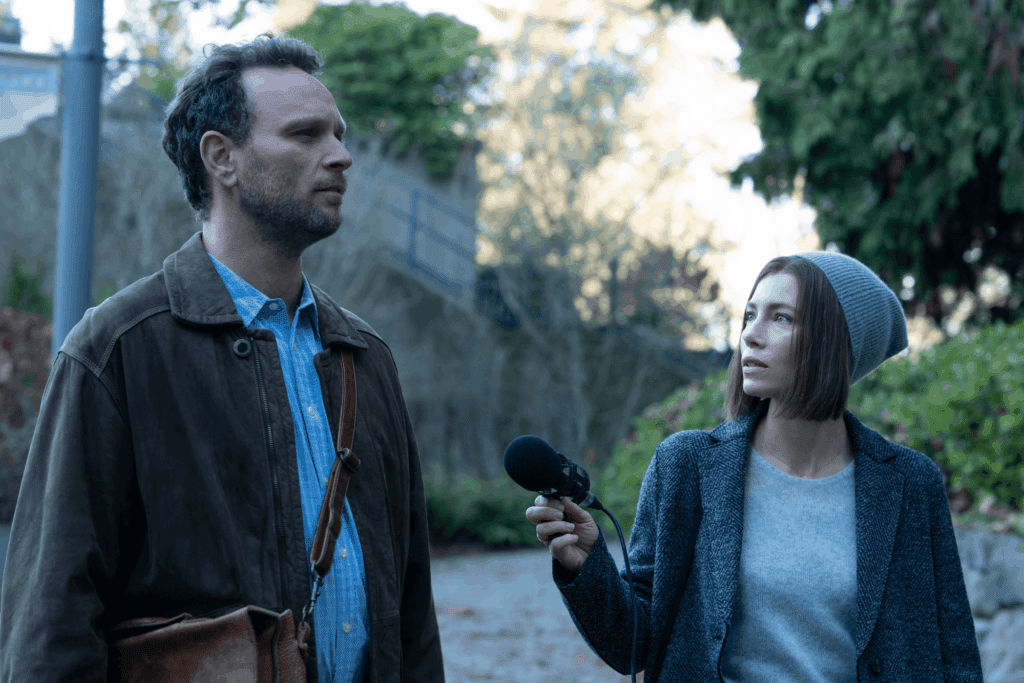Limetown adaptation brings thrills and confusion

In 2015 the fiction podcast Limetown had the podcast-listening world waiting for each episode with bated breath. What happened to the 326 residents of Limetown, Tennessee in 2004? How did they all vanish without a trace? What experiments were happening at the research facility? Now we get to revisit these questions all over again as the series makes the jump to prestige television on Facebook Watch.
For all of its flaws, the podcast excelled at capturing one’s imagination by playing to the strengths of an investigative podcast’s tropes. The host, Lia Haddock, travels from interview to interview, each new person more entertaining than the last. Each discussion reveals more about the disappearance at Limetown while also offering new questions that thicken the plot.
I was given the first four episodes of a nine-episode first season to review, and I’m here to say it’s one hell of an engrossing watch, albeit a complicated one to recommend.

In many ways the first four episodes work better than their podcast counterparts. With each return to the day people first moved into Limetown we’re given a slightly different perspective. The same scene can (and will) be revisited from a new angle multiple times, each iteration adding a new layer. Tonally Limetown makes me think back to Westworld season one and the early seasons of Lost. A drama with a mystery at its core designed to keep you guessing, but with a healthy dash of “prestige television” seasoning.
If you enjoy the usual writing tropes of modern prestige television, you’ll have no problem getting invested in Limetown. If the term “prestige television” makes you roll your eyes, Limetown’s going to be a hard sell, but I still recommend giving it a shot.

Limetown is cyclical in structure, frequently returning to move-in day at the titular town. Each time the show loops around itself new things are shown from the new narrator’s perspective. Even with each new layer of context given, there’s a dreamlike logic to this small town. Stores are fully stocked, everything has a fresh coat of paint, every interior of every house is exactly the same. People are uncomfortable when they arrive in Limetown, and that translates to an overall feeling of unease while watching. I know what happens and I still found myself waiting for the next domino to fall, the next bit of information to be meted out to prove my theories (even if my theories are what I objectively know will happen from the podcast). It’s a show that requires you to set aside time to be able to watch it and be able to recover a bit afterward. Perhaps nowhere near as disturbing as a given episode of The Handmaid’s Tale, but it still has the power to leave one in a funk afterward.
The jump from podcast to television can be a difficult one to make successfully, but Limetown comes prepared with the original writers behind the podcast acting as both writers and executive producers of the adaptation. They’ve taken what we already know to be Limetown and, quite simply, made more of it. The biggest focus of this fleshing-out seems to be focused on series protagonist Lia Haddock (Jessica Biel).

In the first four episodes of the adaptation, it seems Biel-Haddock is a far more engaging, well-rounded character that podcast-Haddock. Most scenes featuring Lia alone trigger flashbacks to her childhood memories of her uncle Emil (played by the ever-charming Stanley Tucci), who ends up working at Limetown and becoming one of the missing 326. She’s tangentially connected to Limetown by the one family member she seems to still have a healthy relationship with, despite not having spoken to him since she was eight years old.
On the flip side, Lia Haddock has some big problems, namely that she’s a crap journalist. While that doesn’t seem like much on paper, it’s hard to get rid of the question “how does she still have a job at APR (the in-canon replacement for NPR). She has seemingly infinite company resources at her disposal, every bit of audio she publishes gets mad traffic, yet flubs most basic ethics of reporting. Lia doesn’t have the chops a reporter at her level would be expected to have, and there’s nothing in the world to indicate the rest of the fictional world acknowledges this.

Lia is always recording, regardless of consent. From her order at a coffee shop to a clandestine aural sex tape of a hookup with her neighbor-with-benefits, Lia’s (in some cases literally) horny for violating privacy. There’s even a scene where she parks a recorder next to a sleeping coworker, gets in her own hotel bed mere feet away, and proceeds to masturbate while listening to his breathing in her headphones.
Why does she do this? The best answer I can come up with from these four episodes is because the show could. As streaming services push the boat out on being seen as “legitimate” sources of drama, there seems to be this expectation they’ll produce an IP that contains content one would normally associate with a Showtime or HBO release. A version of Limetown on broadcast television wouldn’t be able to do this, and as the only facet of Limetown that ticks that box it stands out even moreso.
Perhaps there’s a complex narrative reason for why Haddock’s compulsions to be found in the prequel novel or episodes of the podcast I’ve not listened to, but as we stand with this first block of four episodes: I have no clue. Maybe I’m wrong and this develops into something later, but for now it feels like we’re just falling for the all-too-common trope of having a queer character’s only expression of sexuality be inherently negative in some way. Fingers crossed it’s an intentional character choice that goes somewhere and not a way to garner brownie points on the awards circuit for being edgy for edginess’ sake.
That said, Biel does her best to make Haddock feel legitimate, regardless. TV-Lia has some rough edges and unfortunate writer’s decisions driving the character, but I can’t fault the acting. Biel takes these mismatched elements and molds them as much into something resembling a real, imperfect human as possible. She sells this reporter who’s willing to lose everything to find the truth. How she ends up nude in a decompression chamber as shown in the trailers I have no idea, but I’m interested to see if the small deviations from the podcast mean TV-Lia is going to go in a much different direction by the end of season one.

Of course, the true strength of podcast and TV Limetown are the people Lia encounters on her investigation. In this quartet of episodes, we encounter Winona and Warren Chambers (podcast listeners will recognize him as The Reverend). Kelly Jerette’s performance as Winona makes perfectly clear that Limetown will mess with the audience. Scenes can and will change based on unreliable narrators. It’s a bold statement and it sold me on following this story to its conclusion.
Then we have Warren Chambers, played by the excellent John Beasley. Beasley’s got a big order to fill because his character is the key to the episode “Napoleon.” It’s the best of the first four episodes, which is unsurprising as Napoleon is one of the better single episodes of audio fiction I’ve encountered. Beasley does not disappoint. If anything, the subject matter of his story lends better to a visual medium. Warren Chambers is given some heavy narrative lifting and pulls it off without breaking a sweat.
There’s also a show-stealing performance from French Stewart, of all people. An actor I most associate with his wacky, childlike performances in Third Rock from the Sun and Inspector Gadget 2 achieves so much with so little in one scene, it’s flabbergasting. Without moving from a hospital bed and barely moving his hands, Stewart’s performance marries with the series’ immersive sound design to leave the viewer thoroughly disturbed in a way most war movies or prestige television series about serial killers could only hope to achieve.
Limetown is not without its faults, but in a small crowd of podcast TV adaptations it quickly stands out in a crowd. It remains to be seen if Facebook Watch will be widely adopted enough to justify multiple seasons of something as packed with name-brand stars as Limetown, but even these four episodes on their own significantly raise the bar for fiction podcast adaptations previously set embarrassingly low by Gimlet’s Homecoming.













1 comment
I think the answer to why she masturbates to the sound of her ex and the sound of dude breathing is is revealed in the 4th episode with the pig. The theme of the series seems to be closeness and connections and she is fantasizing about closeness and connection from a detached distance created by the audio recording. I think she longs for and fears the relationship the guy had with the pig.
I think her talking to someone outside while sitting on the toilet peeing is more character building, showing her doing the close and far thing again. It’s weirdly personal from a detached distance. I think the weird crossing and creating boundaries thing is playing into that.
Comments are closed.